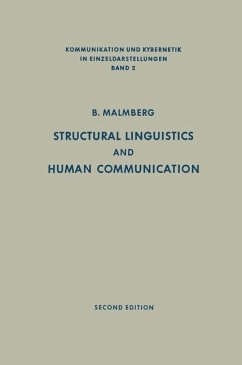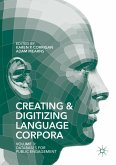The point of departure of this general survey of modern structural linguistics is the place of language in human relations. Linguistics will consequently be understood as a science of communication. My book is not intended as an elementary handbook. The readers are supposed to be in the first place advanced students of linguistics and phonetics and of neighbouring fields where a real awareness of linguistic methods and problems is essential (such as psychology, phoniatrics, speech therapy, language teaching, communication engineering). The book may, however, be of some value also for the general reader who is interested in language, in language learning, or in communication processes. It might finally serve as an introduction to structural theories and practice for those linguists of traditional orientation who would like to make contact with the new trends in the study of language. It is self-evident that, under such circumstances, any reader will find certain chapters in this book rather complicated, others irritatingly elementary. This is, however, unavoidable in a work whose aim is to cover a vast field of knowledge and to offer the reader a synthesis of what appears at first sight to be widely disparate facts and phenomena. Many of the facts brought together here may, regarded superficially, seem to have few or no mutual connections. They can, nevertheless, be combined into a wide humanistic and scientific unity within which numerous lines of relationship bind together physical and psychic, individual and social phenomena.
Hinweis: Dieser Artikel kann nur an eine deutsche Lieferadresse ausgeliefert werden.
Hinweis: Dieser Artikel kann nur an eine deutsche Lieferadresse ausgeliefert werden.








